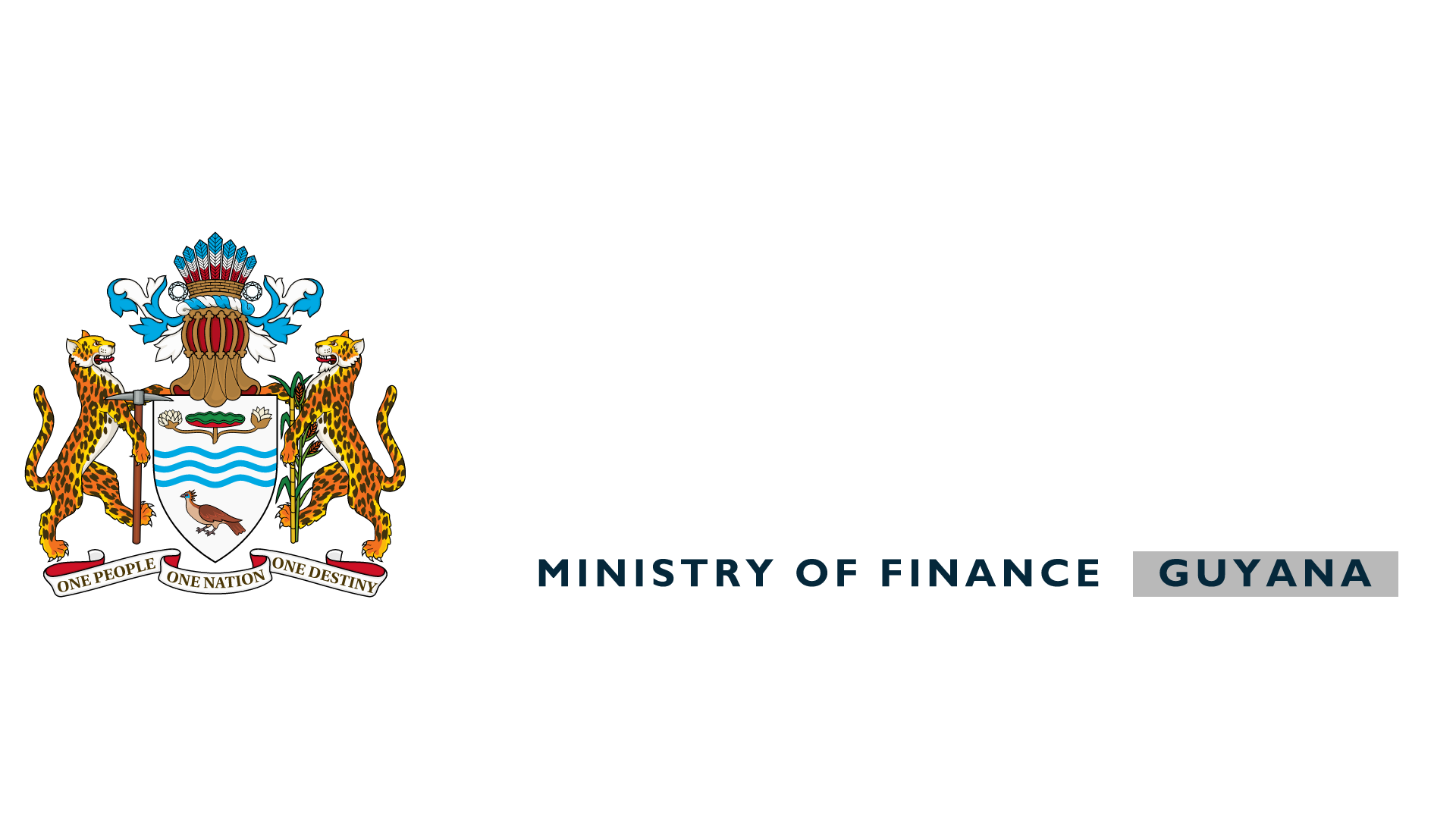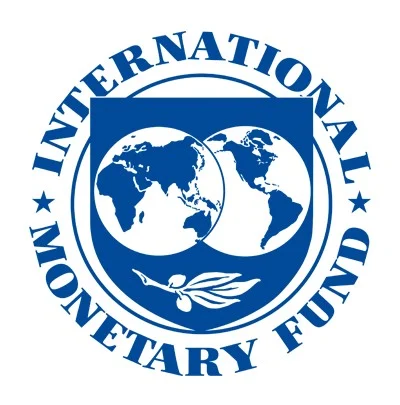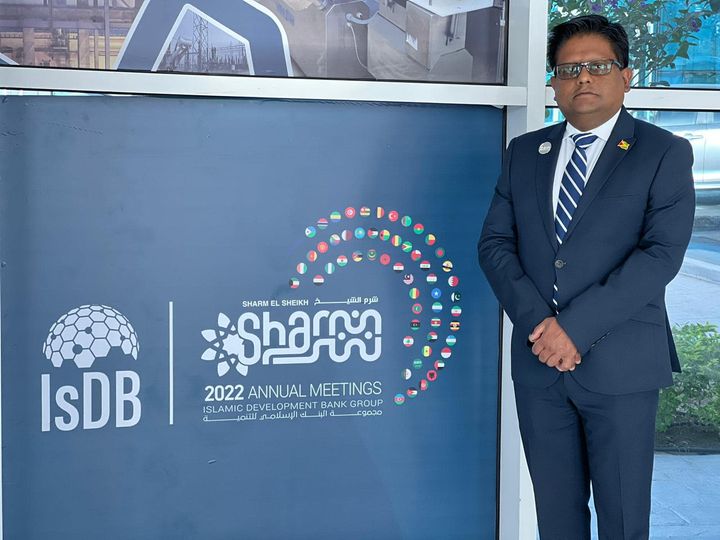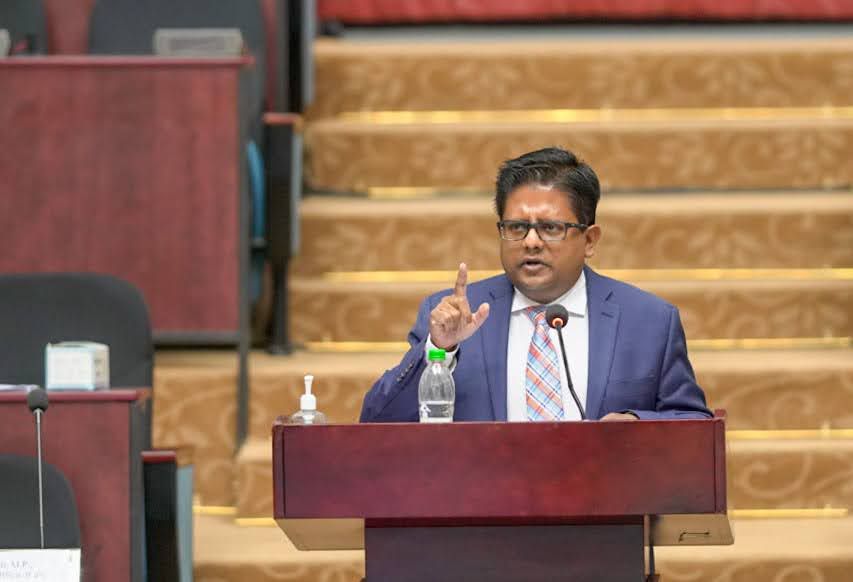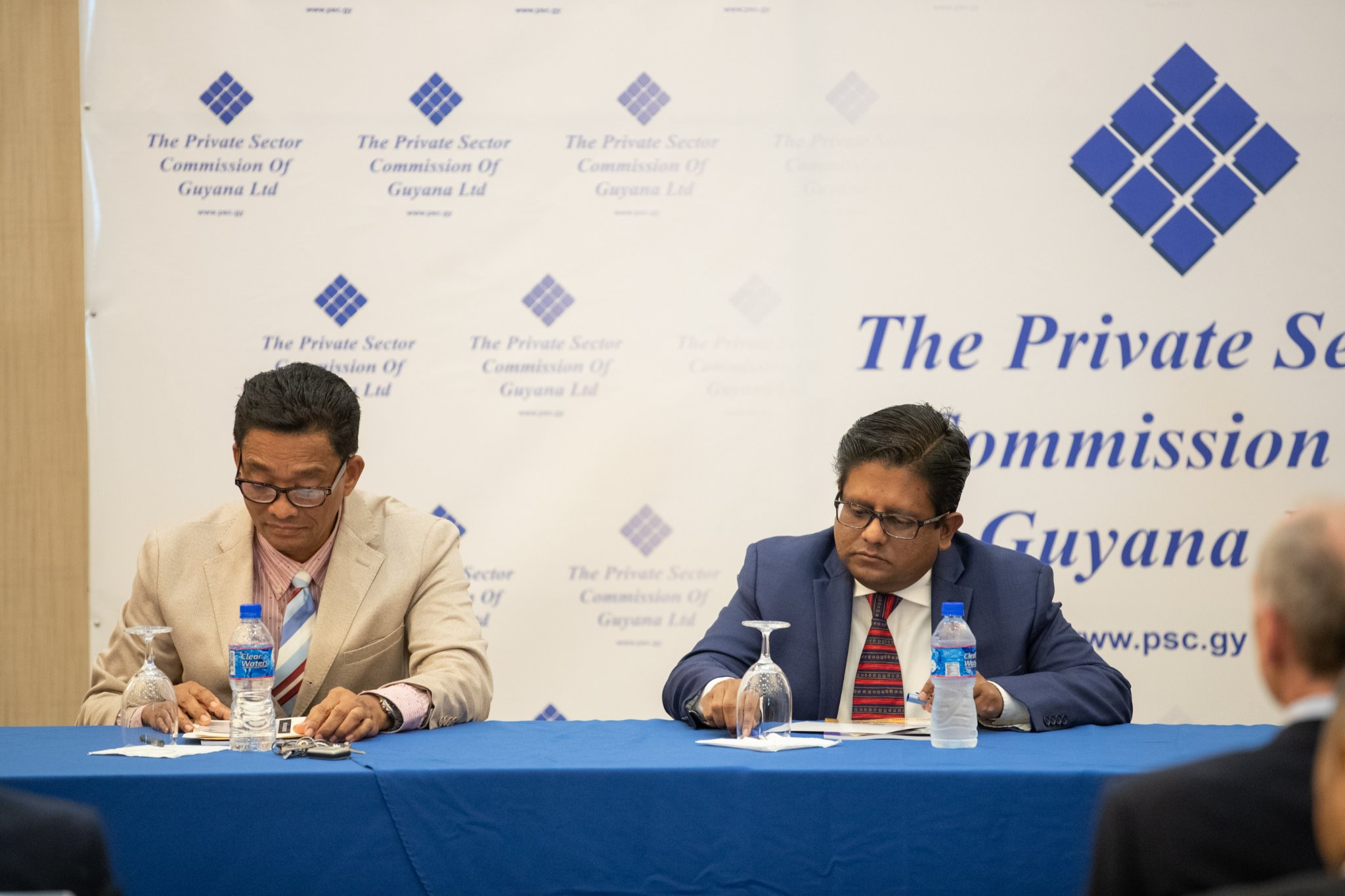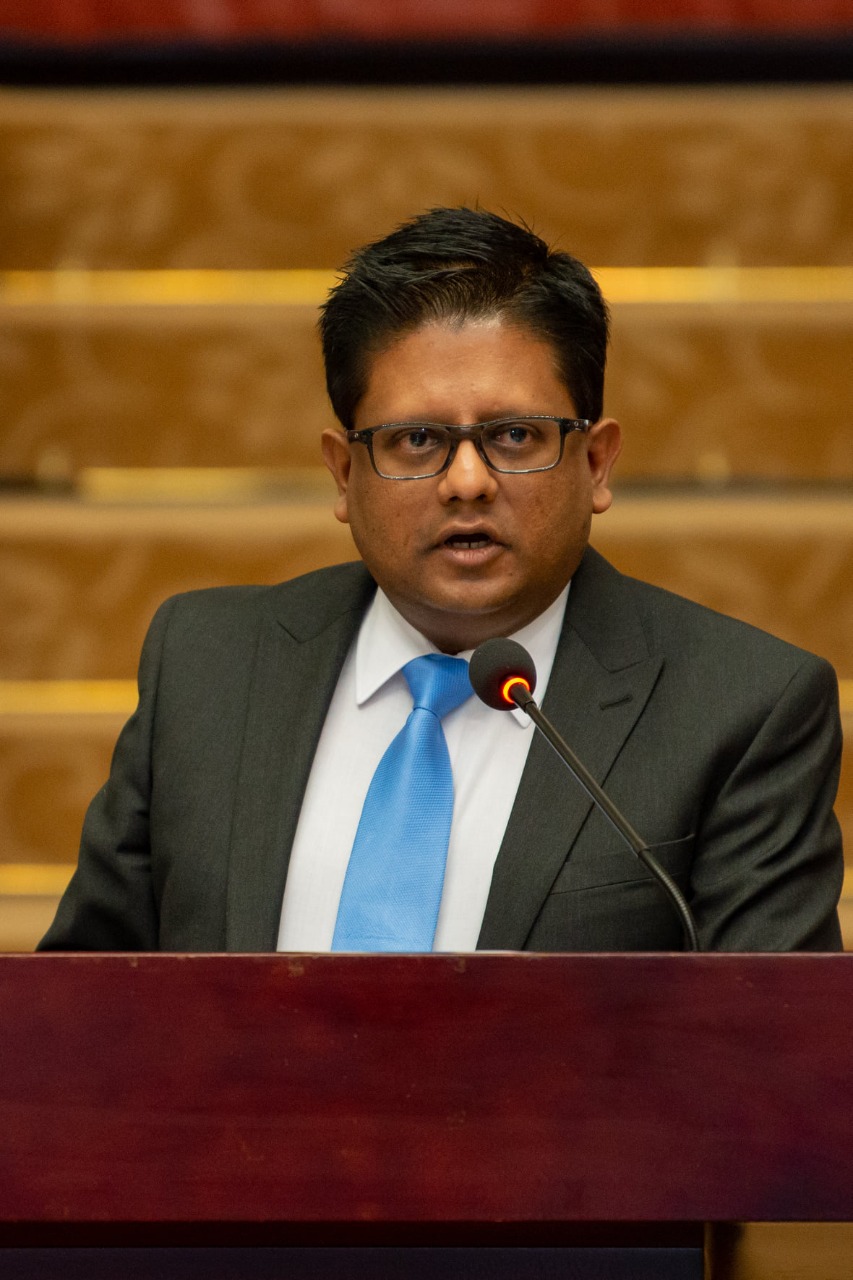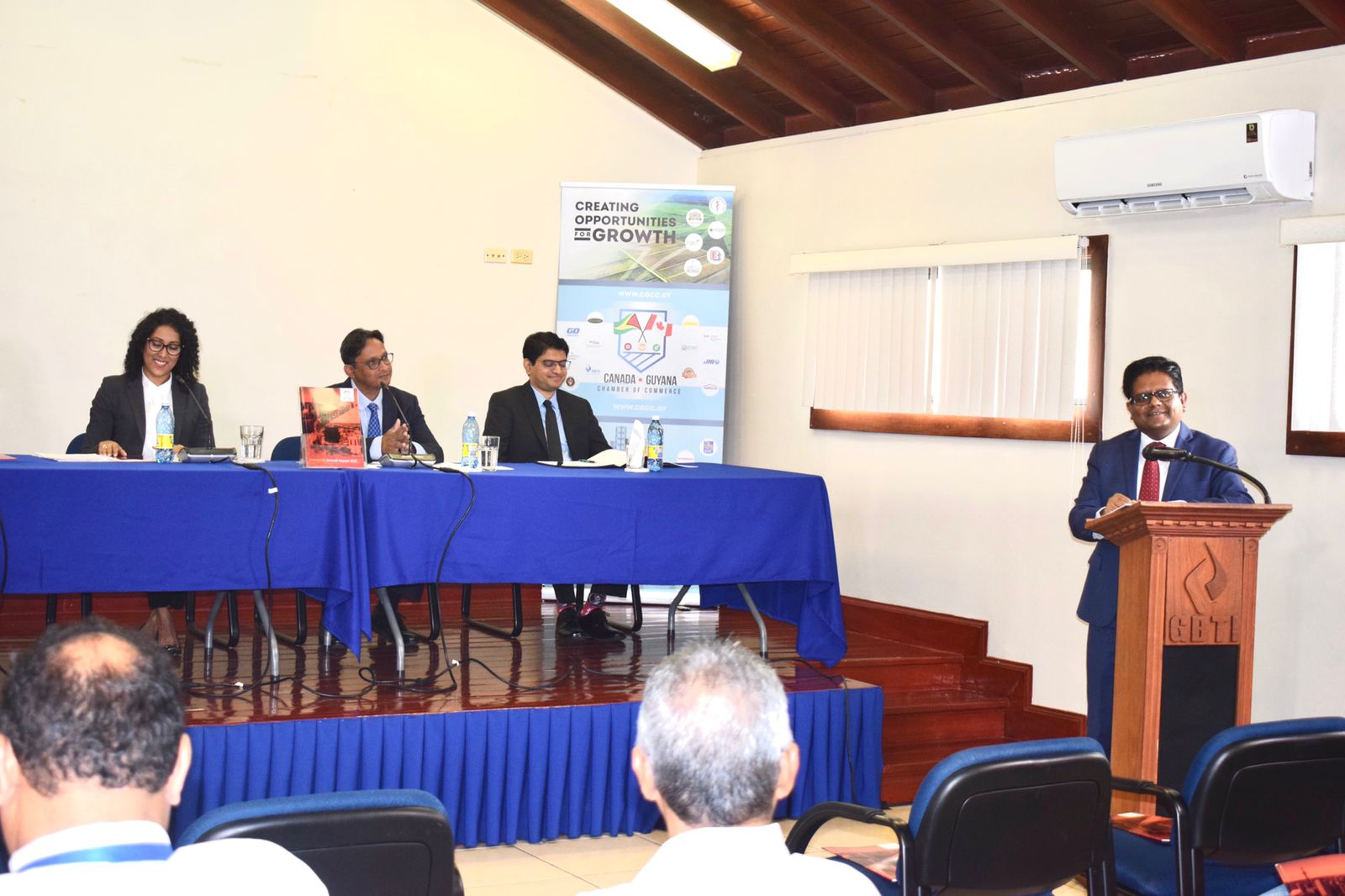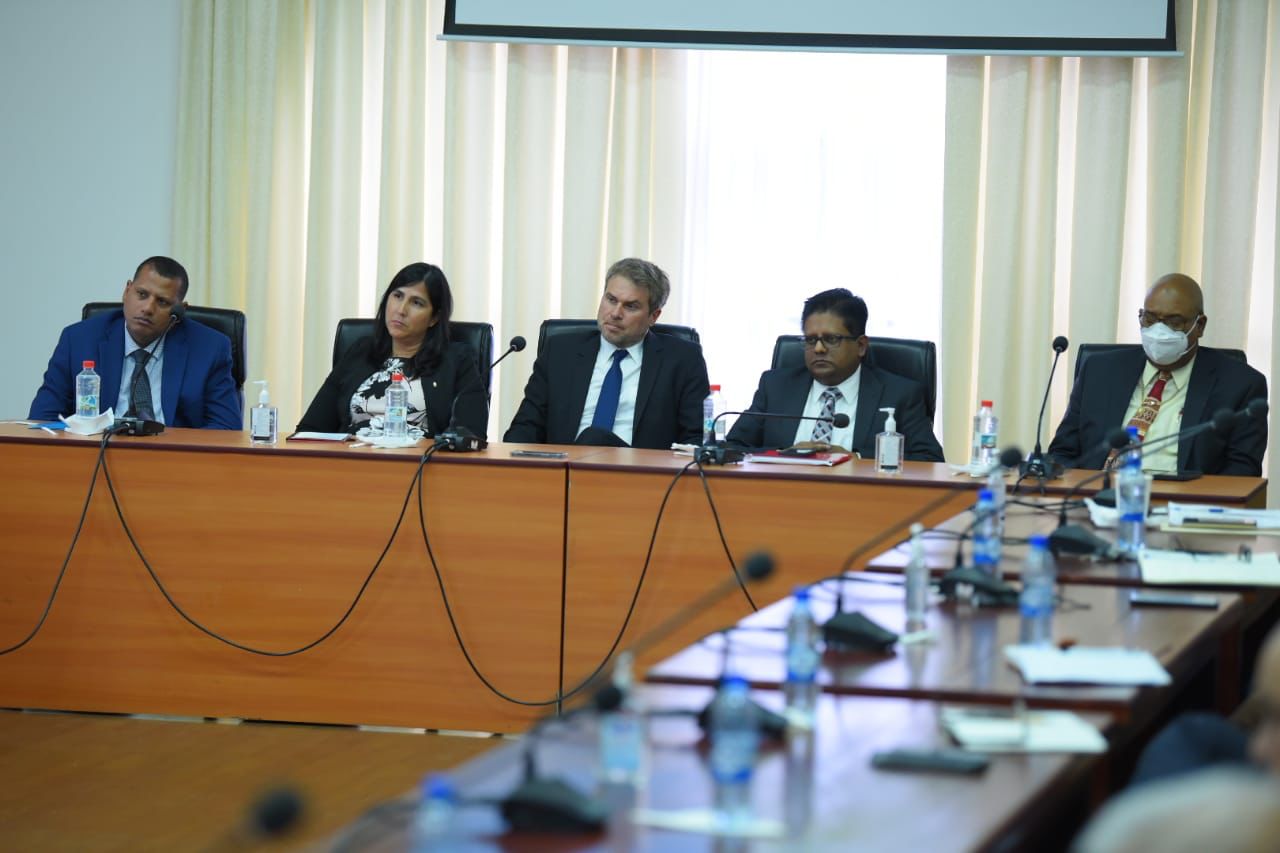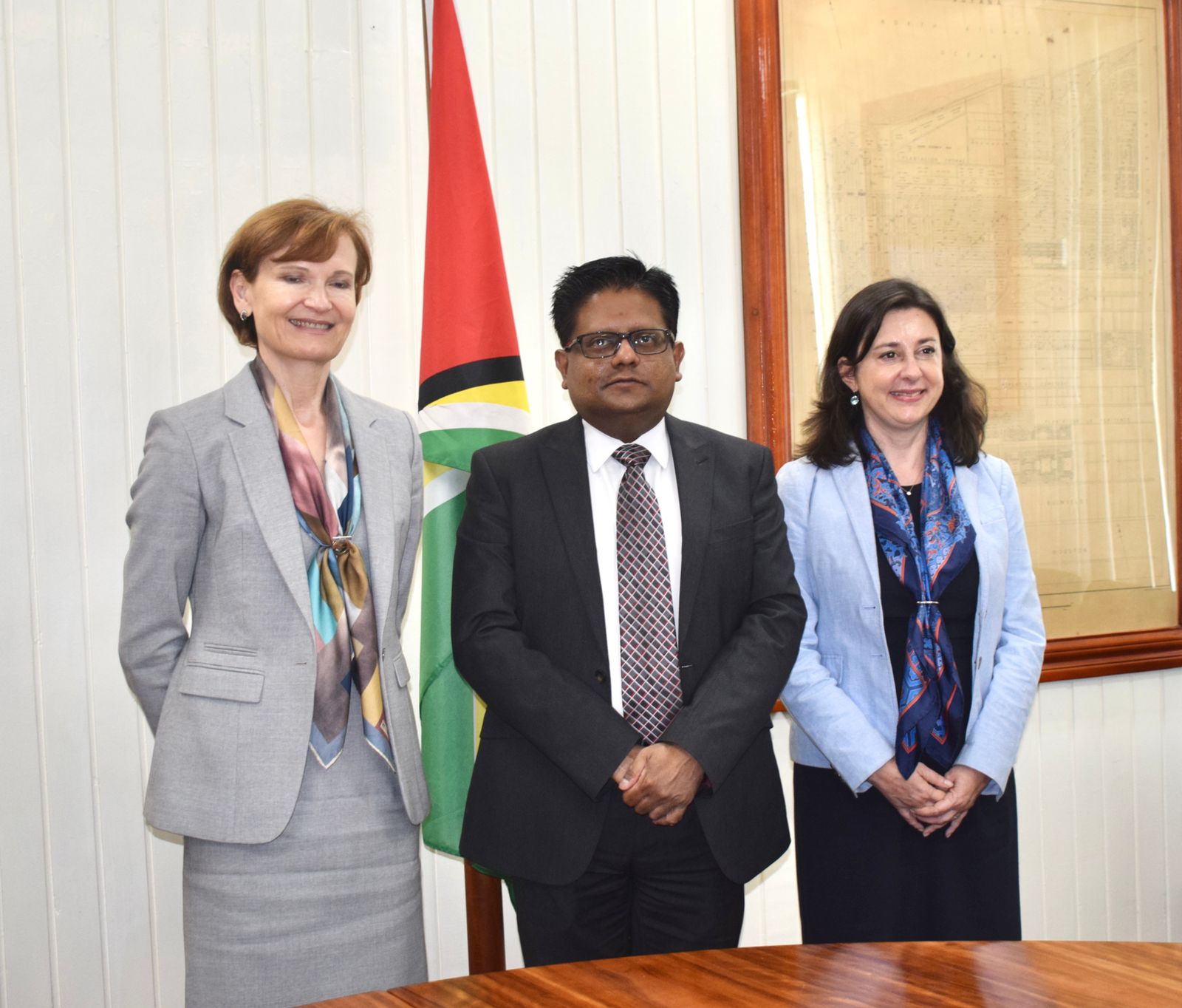-notes deteriorated economy in 2020 has ‘recovered well,’
-amendments made to NRF Act also lauded
– Govt commended for ‘good progress in strengthening Guyana’s anti-corruption framework and
fiscal transparency
Georgetown, Ministry of Finance, June 3, 2022: In its preliminary findings published today, the International Monetary Fund (IMF) has lauded the Government of Guyana on many fronts for its policies implemented and initiatives taken to transform Guyana’s economy, which the institution said had ‘deteriorated’ in 2020 but has since ‘recovered well’. The findings were published following an official IMF mission visit to Guyana.
The IMF pointed out that its missions are ‘undertaken as part of regular (usually annual) consultations under Article IV of the IMF's Articles of Agreement, in the context of a request to use IMF resources (borrow from the IMF), as part of discussions of staff monitored programs, or as part of other staff monitoring of economic developments.
Guyana’s Economy has recovered well from the Global Pandemic and 2021 floods on account of sound policy action
The IMF in its findings said that the ‘Guyanese economy was negatively impacted by the pandemic, and 2021 floods, but has recovered well supported by the oil boom, and policy actions.
“Following the pandemic-induced recession and delayed political transition in 2020, economic growth recovered in 2021, with non-oil Gross Domestic Product (GDP) growth reaching 4.6 percent. The war in Ukraine exacerbated inflationary pressures in 2022—due primarily to higher fuel and food prices—but the government implemented measures to mitigate the impact on vulnerable households and the economy. Even though the current account deficit widened significantly in 2021 in part reflecting increased capital imports, the foreign exchange (FX) reserve position improved, due to the new Special Drawing Rights (SDR) allocation”, the report noted.
It added that “After deteriorating markedly in 2020, the fiscal position remained appropriately supportive in 2021. In response to the pandemic, the authorities reallocated expenditures towards cash grants and transfers and ‘shovel ready’ public investment projects, primarily improving road networks and providing affordable housing, and eased the tax burden on the most vulnerable. Public debt stood at 42.9 percent of GDP at end-2021, one of the lowest in the region,” the institution said.
‘Guyana’s medium-term prospects are more favorable than ever before, with increasing oil production having the potential to transform Guyana’s economy’
While noting that oil production is expected to increase significantly, the IMF indicated that Guyana’s commercially recoverable petroleum reserves is estimated to be well over 11 billion barrels, the third largest in Latin America and Caribbean, and one of the highest levels of oil reserves per capita in the world.
“This could help Guyana build up substantial fiscal and external buffers to absorb shocks while addressing infrastructure gaps and human development needs. However, increased dependence on oil revenues will expose the economy to volatility in global oil prices. A slowing global economy and the repercussions from the war in Ukraine could also adversely affect non-oil exports. On the other hand, higher global oil prices and additional gas and oil discoveries could significantly improve Guyana’s long-term economic prospects,” the IMF added.
IMF supportive of Government’s goals to transform the economy, address development needs in an inclusive way, and protect the long-term economic well-being of Guyana:
The IMF highlighted in its report that it is strongly supportive of the authorities’ efforts to reduce electricity costs, improve transport infrastructure, diversify the economy, improve access to and quality of social services as well as advance more broadly towards the Sustainable Development Goals. As such, Guyana’s Government was commended for its ‘Low Carbon Development Strategy 2030 to maintain the country’s forest coverage and address climate change challenges by shifting towards renewable energy sources, while entering the international carbon credits market’.
IMF lauds Government for amendments to the NRF Act:
The IMF went on further to laud the authorities (GOG) for the recent amendments to the Natural Resources Fund Act.
“The recent amendments to the 2019 Natural Resource Fund (NRF) Act set clear ceilings on withdrawals from the Fund for budgetary spending and promote transparency in the management and use of oil resources. Staff praised the authorities’ thorough review of the 2019 NRF Act before making amendments, and the restraint in using any oil revenues before the passage of the amendments,” the report said.
IMF recommends feasible, moderate increase in public investment while further strengthening the medium-term framework for fiscal policy:
While the international financial institution praised the Government for several of its initiatives, it also recommended that it moves at a cautionary pace in ramping up public investment.
“While pressing development challenges still face the country, a large surge in public investment could add inflationary pressure, affect competitiveness of the non-oil economy, lead to an eventual loss in FX reserves, and might not be sustainable over the medium-term,” the IMF said as it urged Government to simultaneously strengthen the capacity to manage public investment, based on recommendations from the 2017 PIMA report. It also recommended that Government set annual budgets within a fiscal framework that, over the medium term, constrains the annual non-oil overall fiscal deficit (after grants) to not exceed the expected transfer from the NRF, to anchor fiscal policy in a sustainable way.
“This rule will also ensure that fiscal spending, including capital spending, is increased at a measured pace, to address development needs without macroeconomic imbalances,” the institution said while also recommending that further analysis of the oil transfer rules be done, to ensure the long-term sustainability of the NRF and intergenerational equity.
AML/CFT framework strengthened, IMF recommends further advances in this area:
Noting that Guyana has been removed from the Caribbean Financial Action Task Force (CFATF) and the European Commission’s Money-Laundering Blacklists, the IMF recommended that the AMF/CFT framework be further strengthened with mutual evaluation to be done once more by the end- of 2023.
“Similarly, the National Risk Assessment is completed, and the BoG is working on its recommendations with the requested support from the Caribbean Regional Technical Assistance Center (CARTAC)’, the Institution posited.
The IMF also agreed with Government that exchange rate stability serves Guyana’s needs best currently.
“The use of the exchange rate as the nominal anchor is currently appropriate, concurrent with increased efforts to diversify the non-oil economy and deepen the domestic financial markets. The accumulation of substantial buffers in the NRF will strengthen Guyana’s headroom to maintain a stable exchange rate,” it added.
The IMF said too that over the medium- to long-term, as Guyana becomes a major oil producer, the Government is supported in its aims to deepen financial markets and the institution recommended the revising of the monetary policy framework to ensure it is well suited for the economy’s needs, including allowing the exchange rate to absorb shocks and increase its flexibility to maintain competitiveness.
GOG commended by IMF for good progress in strengthening Guyana’s anti-corruption framework, fiscal transparency, supports further advances:
Pointing out that several pillars of the anticorruption framework have been recently strengthened, including the Integrity and Public Procurement Commissions (IC and PPC) and the National Procurement and Tender Administration Board (NPTAB), the IMF noted that ‘Audit reports of public expenditures, including for COVID 19, are published, and their recommendations are followed up on. It added that asset declarations of a large number of public officials are submitted annually, and public procurement tenders are streamed live’. The IMF also noted that Government made progress in implementing the recommendations of the 2019 and 2021 EITI (Extractive Industries Transparency Initiative) reports, notably on the reconciliation with the fiscal regime.
“Some progress has also been made on information sharing and publication of extractive industries’ financial statements, and the authorities are strengthening capacity to address remaining gaps, including in moving towards electronic disclosure and adequate follow-up’, the institution observed.
The IMF concluded further that it is ready to assist Government in its capacity development needs. ”This includes technical assistance on macroeconomic and fiscal management, development of financial market infrastructure, and strengthening of statistical capabilities”, it said.
The IMF announced further that its Executive Board is expected to discuss Guyana’s Article IV consultation on August 31st, 2022.
